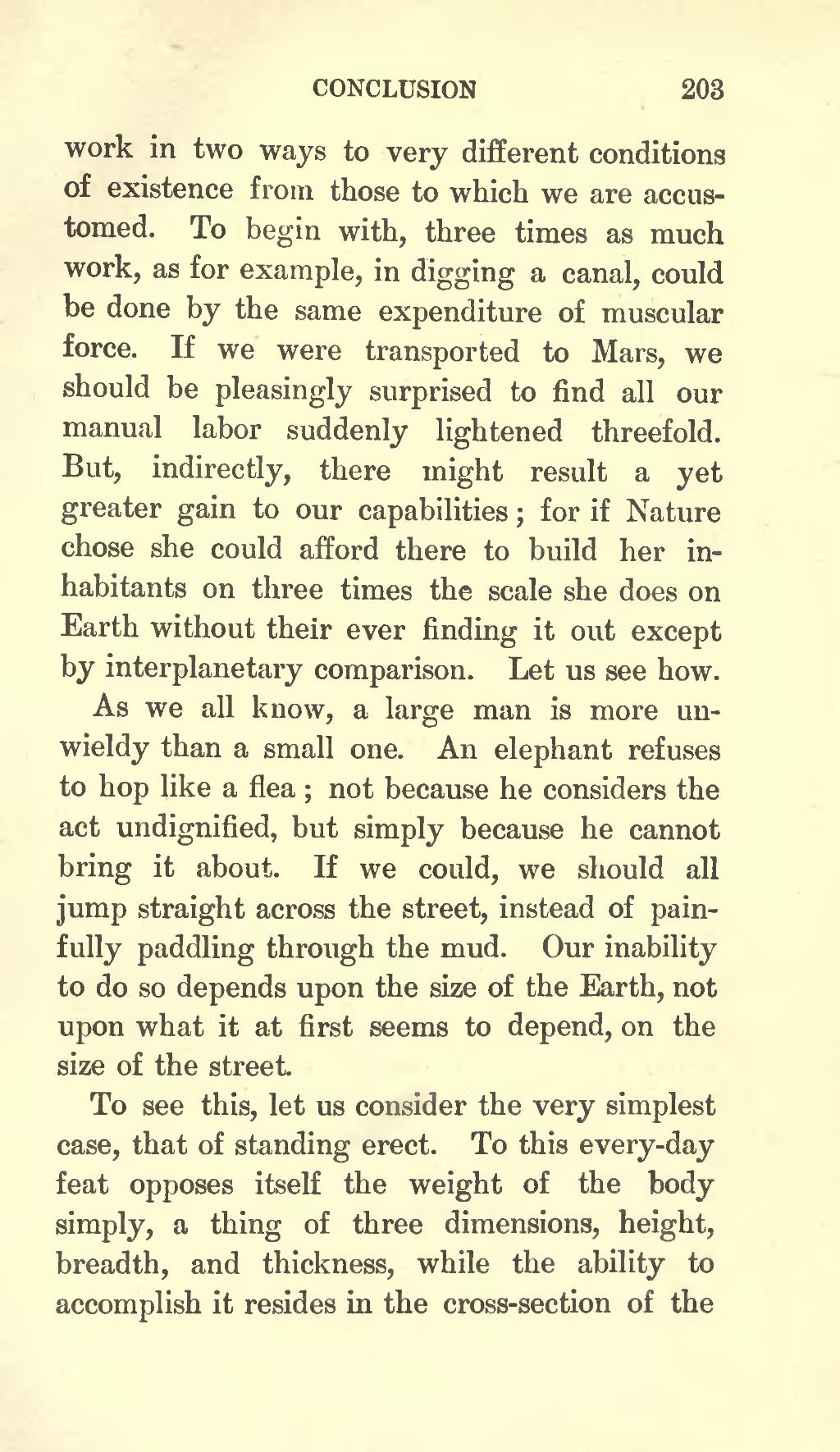work in two ways to very different conditions of existence from those to which we are accustomed. To begin with, three times as much work, as for example, in digging a canal, could be done by the same expenditure of muscular force. If we were transported to Mars, we should be pleasingly surprised to find all our manual labor suddenly lightened threefold. But, indirectly, there might result a yet greater gain to our capabilities; for if Nature chose she could afford there to build her inhabitants on three times the scale she does on Earth without their ever finding it out except by interplanetary comparison. Let us see how.
As we all know, a large man is more unwieldy than a small one. An elephant refuses to hop like a flea; not because he considers the act undignified, but simply because he cannot bring it about. If we could, we should all jump straight across the street, instead of painfully paddling through the mud. Our inability to do so depends upon the size of the Earth, not upon what it at first seems to depend, on the size of the street.
To see this, let us consider the very simplest case, that of standing erect. To this every-day feat opposes itself the weight of the body simply, a thing of three dimensions, height, breadth, and thickness, while the ability to accomplish it resides in the cross-section of the
